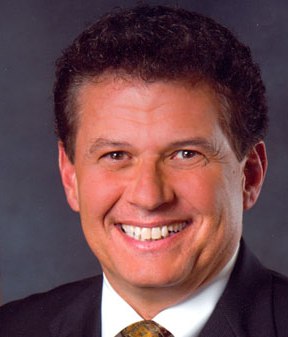Archive for February 8th, 2010

Travers to ski for Cayman Islands in Winter Olympics
 (The Ski Channel): Dow Travers will be the first ever Winter Olympian for the Cayman Islands. His stunt is alpine skiing and his backstory is set against that beautiful, tax-friendly island of endless white sand beaches. On the flip side, Cayman’s highest point does not even qaulify as a mountain or even a hill. It’s a bluff, actually called "The Bluff," and it stands 141 feet above sea level. That’s not a geological recipe for ski success. It was family winter vacations at Beaver Creek that left Travers with a skiing addiction fueled by competitive drive.
(The Ski Channel): Dow Travers will be the first ever Winter Olympian for the Cayman Islands. His stunt is alpine skiing and his backstory is set against that beautiful, tax-friendly island of endless white sand beaches. On the flip side, Cayman’s highest point does not even qaulify as a mountain or even a hill. It’s a bluff, actually called "The Bluff," and it stands 141 feet above sea level. That’s not a geological recipe for ski success. It was family winter vacations at Beaver Creek that left Travers with a skiing addiction fueled by competitive drive.
Murder trial to resume after judge’s decision
(CNS): Following three days of ‘closed door’ legal arguments, the murder trial of Kirkland Henry and Larry Rickets is expected to resume today once the chief justice gives his ruling on the submissions made by the solicitor general and Ricketts’ (left) defence attorney. On Friday Cheryll Richards QC and Robert Fortune presented their submissions over the admissibility of evidence to the judge based on testimony from key witnesses during the three day voir dire. The ‘trial within a trial’ was interrupted briefly on Friday when the pathologist confirmed that Estella Scott-Roberts’ death was associated with asphyxiation and that she was dead before the killers set the car alight.
When asked by the solicitor general if Scott-Robert’s murder was consistent with a plastic bag being place over her head, Dr Bruce Hyma told the court that it was. He confirmed that while the remains he received had been badly burned as a result of the vehicle fire, he was able to confirm that Scott-Roberts was not breathing when the fire started as there was no evidence of debris or soot in the airways which formed part of the remains he received.
Dr Hyma also confirmed that there were no chemicals associated with a victim breathing in fumes or smoke in the blood. He concluded that Scott-Roberts was the victim of a homicide and there was evidence of some form of asphyxiated death in the lungs, though he could not be specific about the exact cause of death. He said, given the evidence in the lungs and the absence of a bullet among the remains, suffocation could not be ruled out.
The voir dire was interrupted to hear Dr Hyma’s testimony as the pathologist is based in Miami.
However, no other witnesses have given testimony before the full court since Tuesday, when Detective Superintendent Marlon Bodden was stopped part way through his evidence. DS Bodden had told the court that sometime following his arrest, Kirkland Henry had confessed to being at the scene of Estella Scott-Roberts’ death but said that Larry Ricketts, who was with him on the night question, had killed her.
The senior detective told the court how Henry had confessed in the back of a police car but pointed the finger at Ricketts as thedriving force behind the crime. Bodden said that after Henry had told him his version of the events on that night (10 October), he read the notes back to him. Henry said he did not read well but still looked it over before he signed the police officer’snotebook. Bodden said Henry then directed the police to Bayshore Mall, where he pointed out one of the ATMs that he said Ricketts had attempted to use with the stolen card on the morning following the murder. After that, he took the police to Ricketts’ residence on Walkers Road but he was not there, so the officers and Henry continued to drive around various places in George Town looking for him.
It was at this point that Bodden’s testimony on the stand was halted and Ricketts’ defence attorney asked for the voir dire, triggering a three day trial within a trial and raising questions which Justice Anthony Smellie must now rule on before the murder trial continues. Depending on that ruling, DS Bodden is expected to return to the stand today, Monday 8 February.

California lawmaker goes after Cayman Islands
 (CNS): One of California’s lawmakers has pushed a bill through the state assembly to clampdown on US firms using the Cayman Islands to avoid tax and divert the money to college students. The Assembly passed Marty Block’s (D-San Diego) bill with a 41-28 vote to temporarily close a loophole allowing companies to create tax havens in other countries. It will now go to the state Senate. The aim is that corporations would pay taxes on offshore accounts only if the money was made in California, said Christopher Ward, Block’s chief of staff. The accounts would be reported on a company’s income tax return with the state Franchise Tax Board.
(CNS): One of California’s lawmakers has pushed a bill through the state assembly to clampdown on US firms using the Cayman Islands to avoid tax and divert the money to college students. The Assembly passed Marty Block’s (D-San Diego) bill with a 41-28 vote to temporarily close a loophole allowing companies to create tax havens in other countries. It will now go to the state Senate. The aim is that corporations would pay taxes on offshore accounts only if the money was made in California, said Christopher Ward, Block’s chief of staff. The accounts would be reported on a company’s income tax return with the state Franchise Tax Board.
"If you raise your revenues in California, you can’t get away with not paying taxes simply by setting up a shell corporation tax structure in a tax haven," Assemblyman Ira Ruskin, D-Redwood City, said during the floor debate.
On the California Progress Report site Block said that one of his top priorities when he came to the Assembly was to eliminate corporate tax loopholes.
“With a grim economy and no-win budget choices, it’s clear that making big business pay their fair share of state tax is more important than ever. To do this I’ve introduced the Cayman Islands Tax Loophole Bill,” he wrote. “You might have heard about a single building in the Cayman Islands that houses almost 19,000 shell corporations. Corporations transfer their profits to these fake companies so they don’t have to pay taxes. Meanwhile, the rest of us get stuck paying more for the services our state needs.”
He said his bill would take money from the Cayman Island Tax Loophole and applies it directly to pay for a tax cut on college textbooks and supplies.
Republicans characterized the bill as a tax increase that would encourage businesses to leave California. "You’re killing companies, you’re discouraging everybody from coming to California, you’re hurting the future of our children that we’re trying to educate," said Assemblywoman Diane Harkey, R-Dana Point.
If passed into law the bill would reduce the state sales tax college students pay on books and supplies by 2 percent between that date and June 30, 2012. After that, the state tax would be eliminated altogether for college students, leaving them to pay only local sales taxes. The California Franchise Tax Board estimated that corporations would pay a total of $70 million in additional taxes during the year following the bill’s implementation. They would pay $120 million each fiscal year after that through mid-2014, and $50 million in the final year until the law expires in mid-2015.
Gov. Arnold Schwarzenegger, who has pledged not to raise taxes, has not taken a position on the bill.

Gov’t faces $1billion liability
 (CNS): While government is still wrestling with its short term economic difficulties and the need to balance spending with revenue for this year’s budget, it is also facing an even worse additional future financial liability. As a result of the obligation to pay for future pension and health care claims by its 6,000 plus public sector workers as well as their dependents, government is currently facing a billion dollar liability. Current government assets, however, amount to around US$600 million, which means government will have to find a way to seriously boost its earnings in the future or default on its obligation to pay civil service benefits.
(CNS): While government is still wrestling with its short term economic difficulties and the need to balance spending with revenue for this year’s budget, it is also facing an even worse additional future financial liability. As a result of the obligation to pay for future pension and health care claims by its 6,000 plus public sector workers as well as their dependents, government is currently facing a billion dollar liability. Current government assets, however, amount to around US$600 million, which means government will have to find a way to seriously boost its earnings in the future or default on its obligation to pay civil service benefits.
In the recent Offering Memorandum issued to the parties interested in purchasing the government’s recent bond offering in November (to raise money to pay last year’s budget deficit and help balance the 2009/10 books) government sets out its future liability for pension payments and health insurance coverage for all public sector workers.
In the memo, government admits to having a combined unfunded pension liability of US$324.8 million which represents the payments that it will need to be made to civil servants who are entitled to defined pension befits when they retire. Although this figure will be affected by the poor performance of government pension funds, civil servants are no longer entitled to defined benefits so the liability should not increase excessively, especially if pension performance improves in the future.
However, government is facing an even greater liability when it comes to providing future health care coverage for civil servants, including their spouses and dependent children who are all entitled to free medical and dental care, not only while they work for government but after retirement as well. The memo reveals, for the first time, the extent of that liability, which government said was estimated to be around US$798 million.
Auditor General Dan Duguay told CNS that he had been trying to confirm this figure for some time as it is an area of interest to his office. However, despite requests to the financial secretary, he had not seen the estimated total liability for health care benefits until he saw the Offering Memorandum, which was shown to him by CNS.
“The future health care benefits liability is the largest single liability of the government. My office has, for several years, been asking for an actuarial valuation of this liability,” Duguay stated. “This apparently has now been done but my office has not seen it as yet. We will be reviewing this valuation carefully once we receive it."
Coupled with the pension liability, the whopping future health care bill means government is currently facing well over US$1 billion in additional liabilities. As a result of a growing civil service, the health care obligation on government could grow to unfeasible levels unless it makes a decision to alter the kind of health benefits it currently offers to employees.
Government would not expect to have to pay the $1 billion bill in one go, but as the liability increases over the years, each financial year the cost of servicing it, which is already substantial, will continue to increase. The 2009/2010 budget included provision for US$17.2 million relating to the current costs of providing benefits to retired public servants.
In the memo government said it is: “currently reviewing ways in which this accrued liability may be limited or reduced, such as by capping the amount payable to any one individual or by limiting eligibility under these plans.”

Six dollar robbery earns six years in prison
(CNS): Although Durney Loxley Ebanks may have only demanded $6 when he threatened a grown man and young child with a machete, the robbery earned him six years at Northward Prison. Sentencing the man that even his own defence attorney had called “something of a menace to society” as a result of his long list of previous convictions, Chief Justice Anthony Smellie observed Ebanks’ mental health problems were complicated by his drive to self-medicate with illegal drugs and alcohol. The judge noted that Ebanks could not be trusted to be in society unsupervised as he did not take his prescribed medication and was a danger to others.
Justice Smellie lamented the lack of a suitable mental health care facility but noted that at least during his incarceration within the prison system he would be under the supervision of mental health practitioners who could ensure his condition was controlled through the proper medication.
Ebanks, who has already been in custody for some time awaiting his trial and subsequent sentencing, still demonstrated obvious mental health problems. He asked if he could speak and told the court that he was sorry but that he had been hurt all of his life since he was eleven years old.
“I know I believe in God and I do what God wants me to do … This life here sucks, I believe in another life,” Ebanks said. “I did those robberies but I never shed blood. It’s not us that do these things, it’s God.”
The chief justice pointed out, however, that God requires people to take responsibility for their actions and Ebanks had up until his sentencing not shown any remorse for his crime and had throughout the trail maintained his innocence. The judge noted that while Ebanks had only demanded six dollars with which to buy cocaine, having gone to the house of his cousin armed with a machete, this had caused great fear in the victim who was at home with his young child.
Ebanks had a history of violent behaviour, Justice Smellie noted, and stated that a custodial sentence was the only option as he said Ebanks was a threat to the community, and handed down the six year sentence.